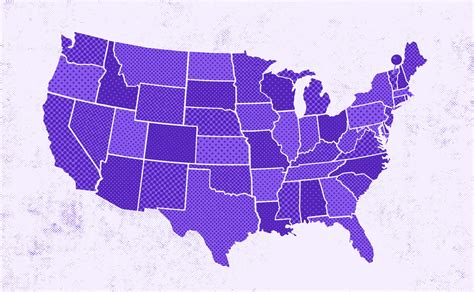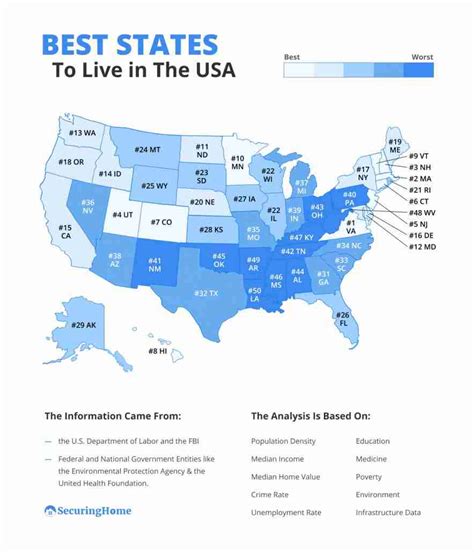How To Survive In The United States

The United States, known for its diverse culture, economic opportunities, and geopolitical influence, can also present unique challenges for individuals looking to survive and thrive within its borders. From navigating the complex healthcare system to understanding the intricacies of the job market, surviving in the U.S. requires a combination of resilience, adaptability, and informed decision-making. This guide is designed to provide insights and strategies for individuals aiming to not only survive but to flourish in the American landscape.
Understanding the Basics of Survival

Survival in the U.S. begins with a solid understanding of the country’s fundamental systems, including healthcare, education, and employment. The U.S. healthcare system, for instance, is primarily private, with options for public coverage through programs like Medicare and Medicaid for specific populations. Navigating this system effectively requires knowledge of health insurance options, understanding of preventive care, and awareness of community health resources. For education, the U.S. offers a comprehensive public system from kindergarten through high school, along with a plethora of higher education institutions, both public and private. Employment opportunities are diverse, ranging from service industry jobs to professional careers in fields like technology, medicine, and finance.
Economic Survival Strategies
Economic stability is a crucial aspect of survival in the U.S. This involves not only finding and maintaining employment but also managing finances effectively. Key strategies include budgeting, saving for emergencies, and making informed decisions about investments and debt management. The concept of a “side hustle” has also become increasingly popular, where individuals supplement their primary income with additional work, whether freelance, part-time, or entrepreneurial ventures. Furthermore, understanding and leveraging tax benefits, such as deductions and credits, can significantly impact one’s financial stability.
| Financial Tool | Description |
|---|---|
| Emergency Fund | A savings account holding 3-6 months' worth of living expenses for unexpected events |
| 401(k) or IRA | Retirement savings plans that may offer tax benefits and employer matching contributions |
| Health Savings Account (HSA) | A tax-advantaged savings account for medical expenses, available with high-deductible health plans |

Social and Cultural Integration

Survival in the U.S. is not solely about economic stability; social and cultural integration plays a vital role in one’s overall well-being and success. This involves understanding and respecting the country’s diverse cultural landscape, engaging with local communities, and developing a network of support. Learning about American customs, traditions, and values can facilitate smoother integration, especially for international individuals. Moreover, leveraging community resources, such as public libraries, community centers, and places of worship, can provide valuable support networks and access to information and services.
Mental Health and Well-being
Mental health is a critical aspect of survival, often intertwined with economic and social factors. The U.S. offers a range of mental health services, from private therapists and counselors to public clinics and support groups. Recognizing the importance of mental well-being, seeking help when needed, and practicing self-care are essential for maintaining a healthy balance in life. This includes activities like exercise, mindfulness, and hobbies, which can serve as stress relievers and contribute to overall well-being.
Key Points
- Understanding the U.S. healthcare, education, and employment systems is crucial for survival.
- Economic stability involves effective financial management, including budgeting, saving, and informed investment decisions.
- Social and cultural integration is vital for overall well-being and can be facilitated through community engagement and respect for cultural diversity.
- Mental health support is available and should be accessed when needed, with self-care practices also playing a significant role in well-being.
- Staying informed about legal requirements, financial strategies, and community resources can significantly impact one's ability to survive and thrive in the U.S.
Legal and Administrative Knowledge
Having a basic understanding of legal and administrative processes in the U.S. can greatly facilitate survival. This includes knowledge of immigration laws for international individuals, awareness of consumer rights, understanding of housing and employment laws, and familiarity with the tax system. Staying compliant with legal requirements, such as obtaining necessary visas, registering with local authorities, and filing taxes, is essential for avoiding legal complications. Moreover, being aware of one’s rights and responsibilities can empower individuals to make informed decisions and seek appropriate assistance when needed.
Community Resources and Support
The U.S. is rich in community resources and support systems designed to aid individuals in various aspects of life. From food banks and housing assistance programs to legal aid services and mental health support groups, these resources can provide critical help during challenging times. Leveraging these resources effectively requires knowledge of their existence, eligibility criteria, and application processes. Non-profit organizations, government agencies, and community centers often serve as hubs for accessing these services and can offer valuable guidance and support.
What are the primary steps for an international individual to legally work in the U.S.?
+International individuals typically need to obtain a work visa, such as an H-1B for specialty occupations, or participate in programs like Optional Practical Training (OPT) for students. The process involves petitioning by a U.S. employer and approval by U.S. Citizenship and Immigration Services (USCIS).
How can one find affordable healthcare options in the U.S.?
+Affordable healthcare options in the U.S. include marketplace plans under the Affordable Care Act (ACA), Medicaid for low-income individuals, and employer-sponsored health insurance. Utilizing health insurance marketplaces, comparing plan benefits and costs, and seeking assistance from navigators or brokers can help in finding affordable coverage.
What financial assistance programs are available for low-income families in the U.S.?
+Programs such as the Supplemental Nutrition Assistance Program (SNAP) for food, Temporary Assistance for Needy Families (TANF) for cash assistance, and Section 8 housing choice vouchers for housing aid are available. Eligibility and application processes vary by program and state, so consulting local social services or non-profit organizations can provide detailed guidance.
In conclusion, surviving in the United States requires a multifaceted approach that encompasses understanding of the country’s systems, economic stability, social and cultural integration, mental health, and legal knowledge. By being informed, proactive, and resilient, individuals can not only survive but thrive in the diverse and dynamic landscape of the U.S. Whether navigating the complexities of healthcare, finding economic stability, or integrating into local communities, the key to success lies in accessing the right information, resources, and support networks. As the U.S. continues to evolve, staying adaptable, open to learning, and engaged with one’s community will remain essential strategies for a fulfilling life in America.



